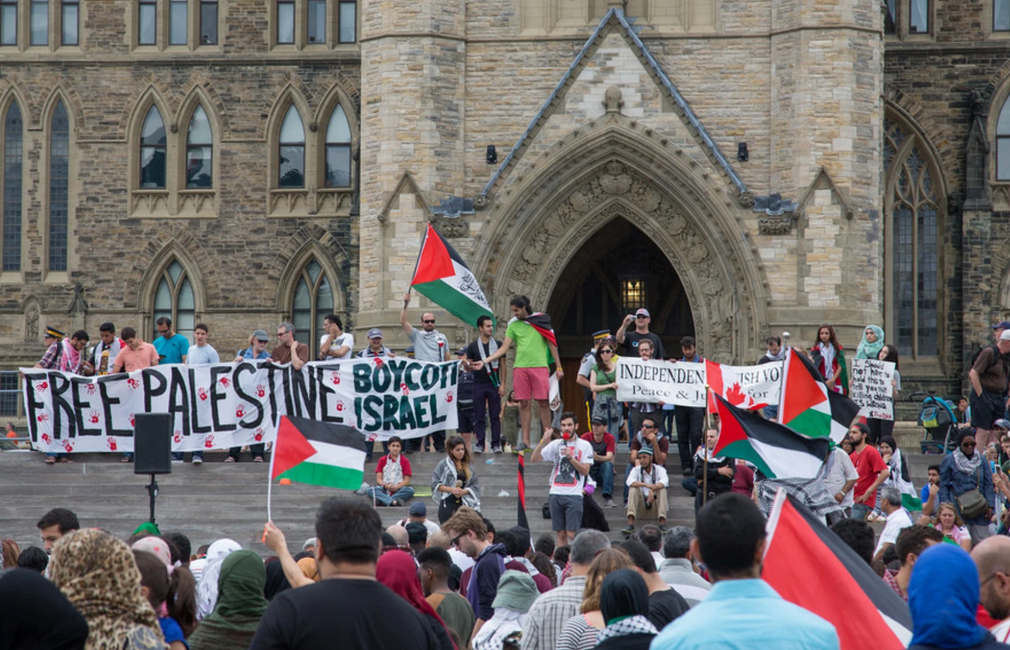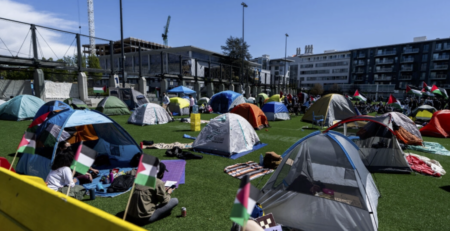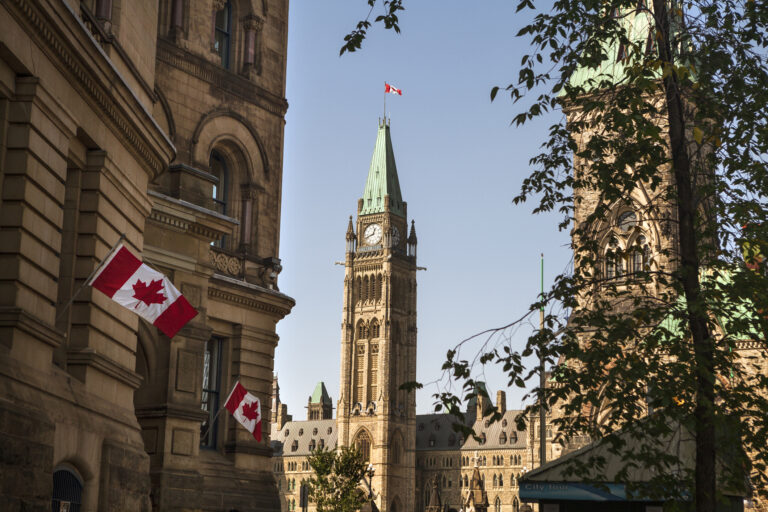by John Carpay
Students at McGill University will soon vote, once again, on whether the Students Society of McGill University (SSMU) should endorse the Boycott, Divestment, Sanctions (BDS) campaign, which seeks to place an economic boycott on the state of Israel over its treatment of Palestinians. Members of Parliament will soon vote on the same issue. For Parliament, this is an important international question, entirely within the federal government’s responsibility over foreign policy. For a student union, it’s juvenile grandstanding.
McGill is not alone. Student unions at York, Ryerson, Concordia and others have all passed motions endorsing BDS, thus diverting student union money and resources towards ideological goals that not everyone agrees with.
BDS is not the first issue to be taken up by Canada’s student unions. In recent years, student unions have also endorsed positions on bottled water, abortion, “Silent No More,” Pride, “misandry,” fossil fuels, “No Olympics on Stolen Native Land,” and a not-so-diverse collection of other issues. Some student unions go even further by placing an outright ban on groups, lectures or events representing alternative views that don’t align with the views of student politicians. This has made it necessary for two university campus clubs, Speak for the Weak and Students for Life, to sue their respective student unions at the University of Toronto Mississauga and the University of Ontario Institute of Technology. In both cases, the student unions denied club recognition to these student groups because of their pro-life stance on abortion.
Successful endorsements enable activists to claim that they represent the entire student body in wanting to boycott Israel, or ban water bottles, or support Pride. They obtain a form of “democratic legitimacy,” in spite of the fact that fewer than twenty percent of students actually vote in student union elections. The result is that a very small, very vocal and often very radical sub-section of the student population can easily sweep elections with as little as ten percent of the vote, or even less, and thereafter claim to represent the majority.
Our public universities have a special obligation to foster the free exchange of ideas on campus. In order to attend these institutions, students must pay student union dues. Student unions therefore also have this responsibility to facilitate a safe space for free expression, where all views can be presented and debated, and where dissent is recognized as valuable. Taking stances on political issues like BDS necessarily excludes those fee-paying members of the student union who do not share the same views, but are still required to support it through their student fees.
The Justice Centre’s annual Campus Freedom Index grades Canada’s public universities and student unions on the extent to which they uphold free expression on campus. Student unions earn lower grades when they take political stances on issues outside of their mandate, such as BDS. Rather than creating an environment where all students feel free and welcome to voice diverse opinions on campus, endorsements like these create an environment of fear, isolation and exclusion for students harbouring “unendorsed” views about important issues.
The Queen’s Alma Mater Society (QAMS) has provided a refreshing alternative through “a general policy of political neutrality” on issues outside its mandate. This neutrality can “better foster openness and inclusivity than a politicized [student union],” according to QAMS.
As Kanivanan Chinnah, out-going QAMS president, explains it: “The AMS serves and represents the diversity of students at Queen’s, and we know that students have a wide array of personal beliefs… We owe it to the students who pay our salary to remain politically neutral on divisive political issues.”
To support the diverse views of students on campus, student unions must refrain from taking sides, and instead encourage all students to speak up about the issues they care about. Otherwise, they risk alienating young minds at a critical point in their intellectual and social development.
— The Campus Freedom Index is produced annually by the Justice Centre for Constitutional Freedoms (jccf.ca). The Justice Centre acts for Speak for the Weak and Students for Life, in their court actions against their respective student unions.









